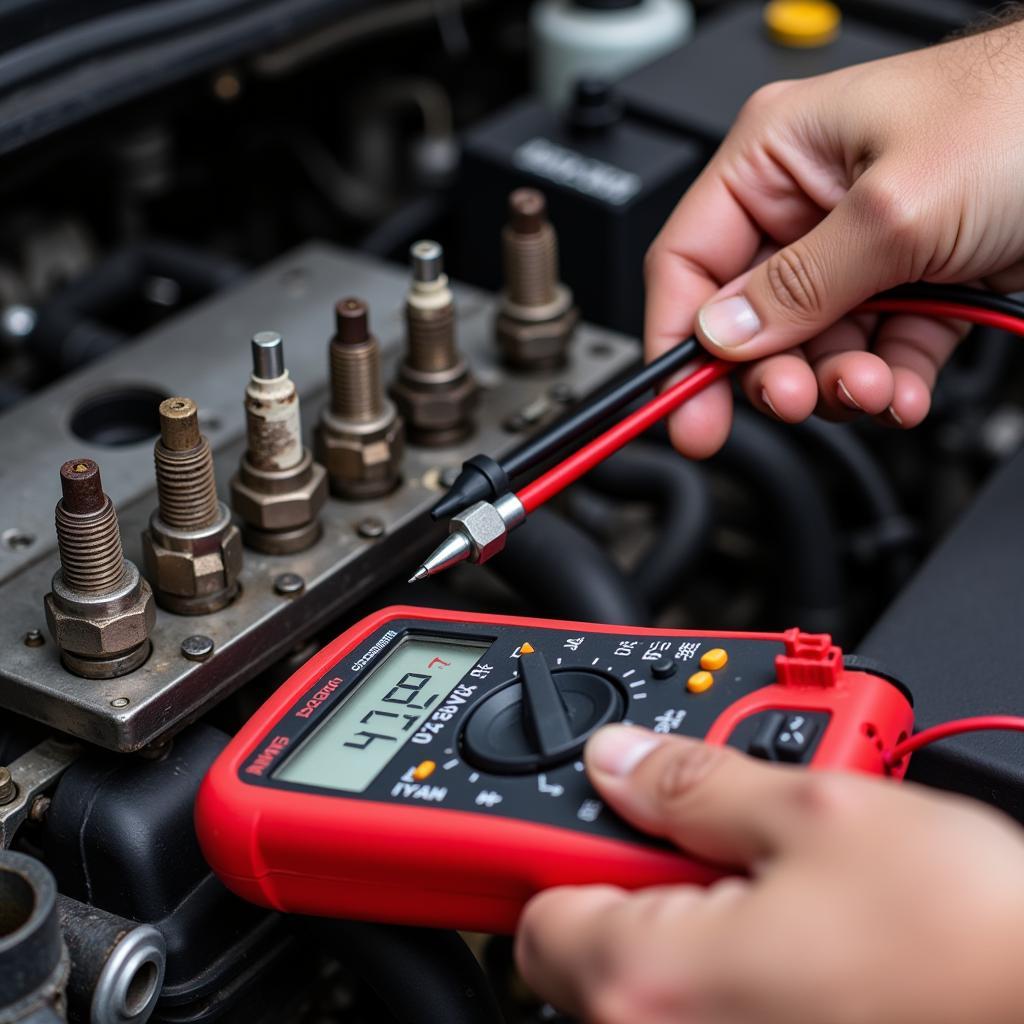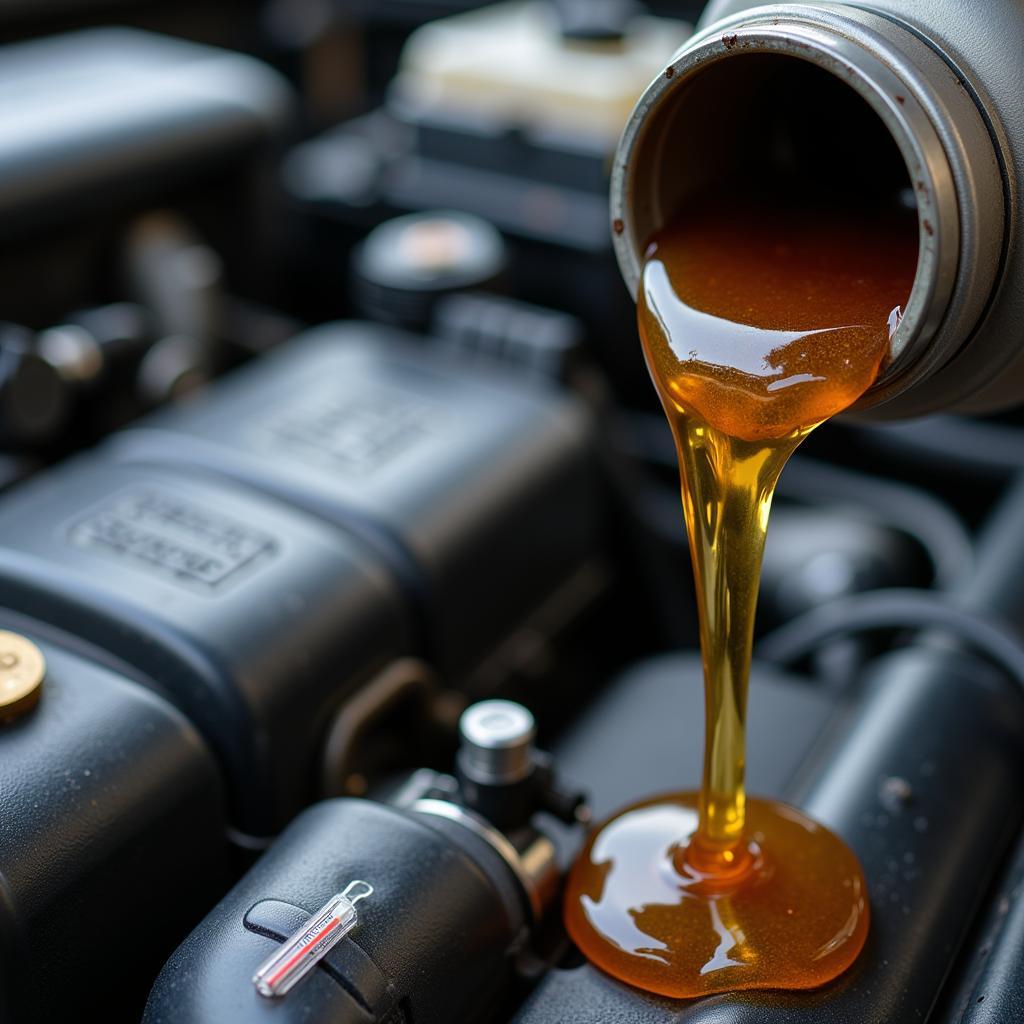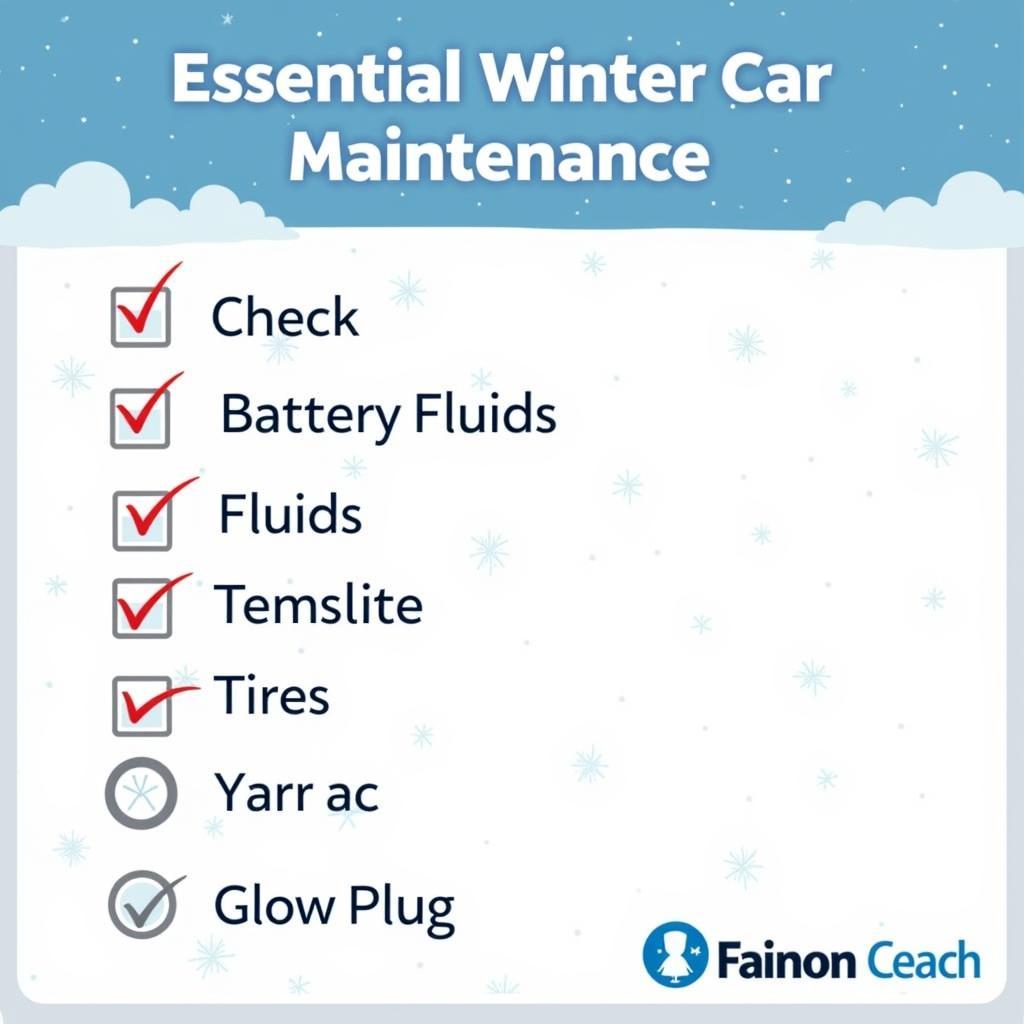Experiencing problems starting your diesel car in cold weather? You’re not alone. Cold temperatures can significantly impact a diesel engine’s ability to start, leaving you stranded on a frosty morning. This article delves into the common culprits behind these cold-start issues and provides practical solutions to get your diesel engine roaring back to life, even when the mercury plummets.
Why is My Diesel Car Hard to Start in Cold Weather?
Several factors contribute to diesel car starting problems in cold weather. Unlike gasoline engines, diesels rely on compression ignition, meaning the fuel ignites solely from the heat generated by compressing the air in the cylinders. In frigid temperatures, this heat can be insufficient to ignite the fuel, especially if the engine components are cold.
The Role of Glow Plugs
Glow plugs are essential for cold starting a diesel engine. These small heating elements, located in the combustion chamber, preheat the air, making it easier for the fuel to ignite. Faulty glow plugs are a common reason for cold-start issues.
 Faulty glow plugs in a diesel engine
Faulty glow plugs in a diesel engine
Fuel Gelling: A Cold Weather Nemesis
Diesel fuel contains paraffin wax, which can solidify or “gel” in cold temperatures, clogging the fuel filter and preventing fuel from reaching the engine. This is particularly problematic in extremely cold climates.
Thick Engine Oil
Low temperatures cause engine oil to thicken, making it harder for the engine to crank. This increased viscosity puts extra strain on the starter motor and battery, further hindering the starting process.
 Thick engine oil impacting diesel engine start
Thick engine oil impacting diesel engine start
Troubleshooting and Solutions for Problems Starting a Diesel Car in Cold Weather
Here’s a step-by-step guide to help you troubleshoot and resolve cold-start problems with your diesel car:
-
Check the Glow Plugs: Use a multimeter to test the resistance of each glow plug. Replace any faulty plugs.
-
Inspect the Fuel Filter: A clogged fuel filter is a telltale sign of fuel gelling. Replace the filter and consider using a fuel additive designed to prevent gelling.
-
Use the Right Engine Oil: Switch to a winter-grade engine oil with a lower viscosity rating. This will ensure the oil flows freely even in freezing temperatures.
-
Check the Battery: Cold weather can weaken your battery. Ensure it’s fully charged and in good condition. A load test can determine the battery’s health.
-
Consider a Block Heater: A block heater warms the engine block, making it easier to start in extremely cold temperatures. This is particularly useful in regions with prolonged periods of sub-zero temperatures.
“In my experience, a faulty glow plug is the most common culprit behind cold-start issues in diesel engines,” says John Miller, a certified automotive technician with over 20 years of experience. “Regular maintenance and preventative measures can save you a lot of hassle during the winter months.”
Problems Starting Diesel Car in Cold Weather: Quick Fixes
What if you’re stuck in a freezing parking lot and need a quick fix? Here are some strategies:
- Turn the Key to the “On” Position: Wait a few seconds for the glow plugs to heat up before attempting to start the engine. Repeat this a couple of times if necessary.
- Use a Jump Starter: If you suspect a weak battery, a jump starter can provide the extra boost needed to crank the engine.
“Don’t crank the engine continuously for extended periods, as this can damage the starter motor,” advises Sarah Johnson, a seasoned diesel mechanic. “Short bursts of cranking are more effective and less damaging.”
Conclusion
Problems starting a diesel car in cold weather can be frustrating, but understanding the underlying causes and implementing preventative measures can help you avoid these issues. By following the tips outlined in this article, you can keep your diesel engine running smoothly all winter long. Need further assistance? Connect with the experts at AutoTipPro at +1 (641) 206-8880. Our office is located at 500 N St Mary’s St, San Antonio, TX 78205, United States.
 Winter car maintenance checklist
Winter car maintenance checklist
FAQ
- How often should I replace my glow plugs? Glow plugs typically last between 60,000 and 100,000 miles.
- What type of fuel additive should I use in cold weather? Look for diesel fuel additives specifically designed to prevent gelling and improve cold-weather performance.
- Can I use any type of winter-grade engine oil? Consult your vehicle’s owner’s manual for the recommended oil viscosity.
- How can I tell if my battery is weak? Slow cranking, dimming headlights, and difficulty starting are signs of a weak battery.
- Is it necessary to use a block heater? Block heaters are particularly beneficial in extremely cold climates, but they are not always necessary in milder winters.
- What should I do if my diesel car won’t start even after trying these tips? It’s best to consult a qualified diesel mechanic for further diagnosis and repair.
- How can I prevent fuel gelling? Using a fuel additive and keeping your fuel tank at least half full can help prevent gelling.




Leave a Reply